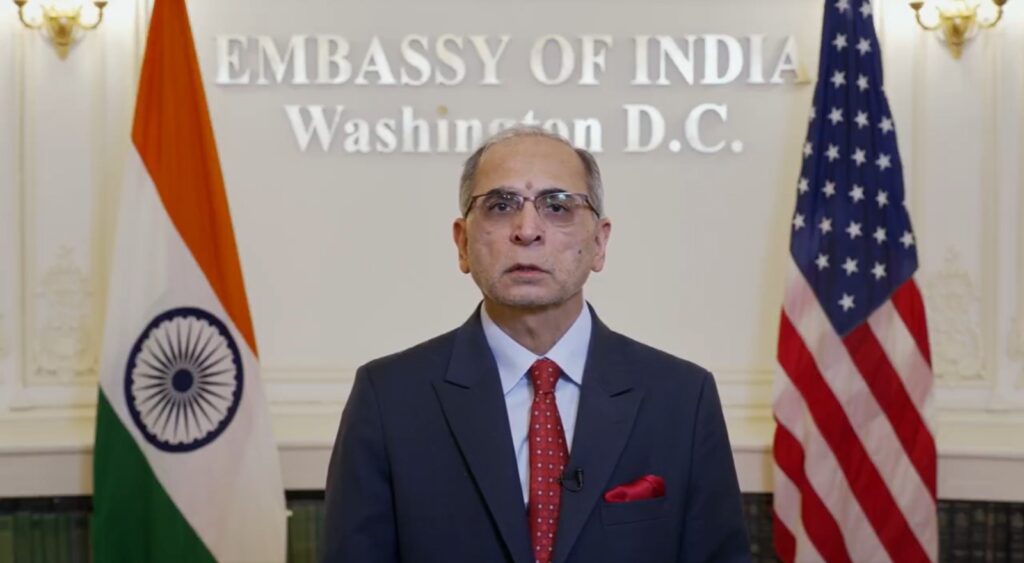Indian envoy Vinay Mohan Kwatra on Friday, August 22, discussed “mutually beneficial trade engagement” and “energy security” with US lawmakers amid tariff tensions between Washington and New Delhi.

The Indian ambassador met Senator Bill Hagerty and thanked him for “consistent and strong support to the India-US partnership”.
“Briefed him on continuing bilateral discussions for fair, balanced and mutually beneficial trade engagement,” the Indian envoy posted on social media.
He also shared “perspectives on India’s energy security and the growing trade between India and the US in hydrocarbons” with Senator Hagerty.
Had a productive conversation with @rep_jackson . We discussed our trade and economic partnership. Thanked him for his support to the 🇺🇸🇮🇳 bilateral relations.
— Amb Vinay Mohan Kwatra (@AmbVMKwatra) August 23, 2025
Had a useful conversation with @RepHaleyStevens , Ranking Member Research and Technology Subcommittee. We discussed 🇺🇸🇮🇳 bilateral economic partnership, including our fair and balanced trade engagement. Appraised her of India’s significant hydrocarbon purchases from the U.S. as…
— Amb Vinay Mohan Kwatra (@AmbVMKwatra) August 22, 2025
Kwatra also held a “productive conversation” with Congressman Greg Landsman and briefed him on developments in bilateral trade engagement.
“Briefed him on recent developments in bilateral trade engagement and energy security, and the growing hydrocarbon partnership between our countries,” he posted on social media.
Earlier, Kwatra met with Rep Josh Gottheimer, Ranking Member of the National Security Agency & Cyber Subcommittee, House Intelligence Committee, and discussed “two-way trade in oil and gas” and “mutually beneficial trade ties.”
“Shared updates on the latest developments in bilateral energy cooperation, including two-way trade in oil and gas and balanced, fair and mutually beneficial trade ties,” Kwatra posted on social media on Thursday.
Kwatra has met with 16 US lawmakers since August 9, as revealed by his social media posts.
The series of meetings comes amid strain in India-US relations after US President Donald Trump imposed tariffs totalling 50 percent on India. This includes 25 percent for New Delhi’s purchases of Russian oil that will come into effect from August 27.
Defending its purchase of Russian crude oil, India has been maintaining that its energy procurement is driven by national interest and market dynamics.
India turned to purchasing Russian oil sold at a discount after Western countries imposed sanctions on Moscow and shunned its supplies over its invasion of Ukraine in February 2022.


